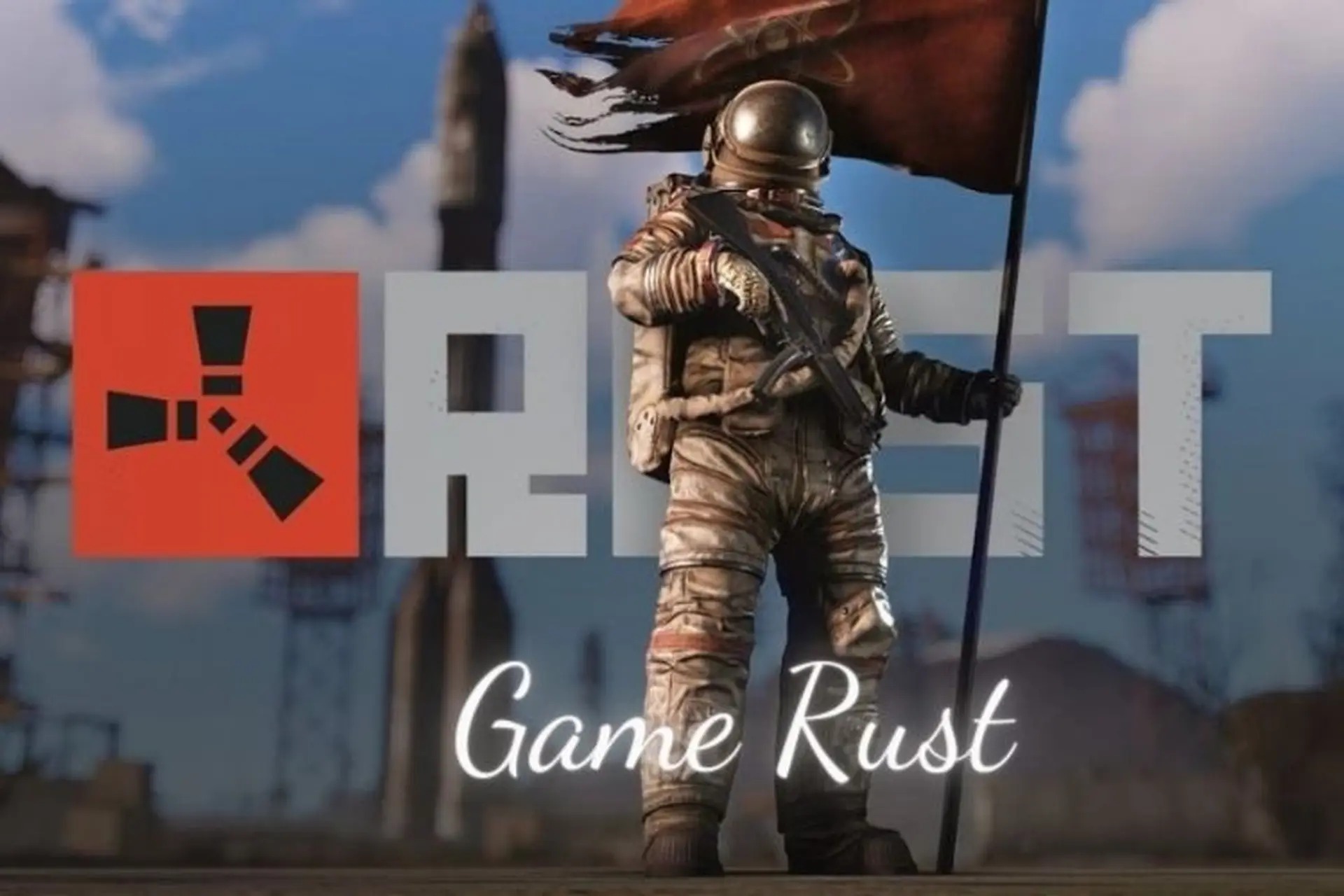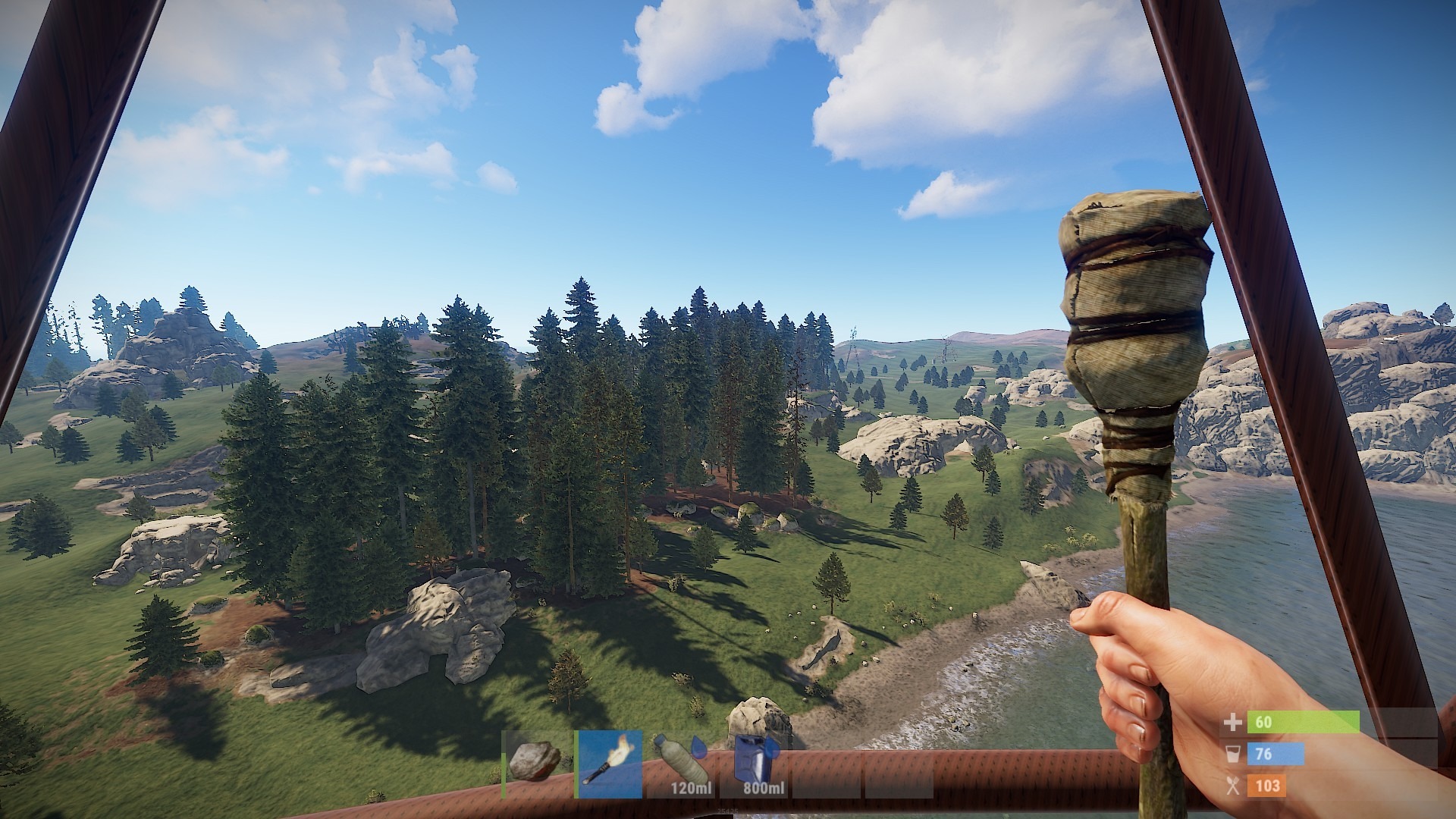
Rust
All trademarks belong to their respective owners. Get GameThe Art of Survival: Advanced Base Building and Raiding in Rust

Rust is a game where your survival hinges not just on your combat prowess but equally on your strategic mind. Once you’ve mastered the basics of finding food and crafting a crude weapon, the true endgame begins: base building and the constant cycle of raiding and defending. This isn’t just about placing walls; it’s an intricate dance of resource management, psychological warfare, and architectural cunning. Mastering these elements transforms you from a mere survivor into a dominant force on the server.
1. Advanced Base Building: Fortification and Deterrence

Building in Rust goes far beyond a simple wooden shack. An effective base is a carefully engineered fortress designed to deter raiders and protect your valuable loot.
- Material Progression:
- Wood: Weak, burns easily, good for early game or decoy bases.
- Stone: Stronger, fire-resistant, the most common base material.
- Sheet Metal: Very strong, resistant to most explosives.
- Armored: The strongest, incredibly expensive, used for critical areas like loot rooms.
- Tip: Always upgrade your base materials from inside out. An armored core with metal/stone outer layers is a common strategy.
- Layout and Design Principles:
- Honeycomb: Surrounding your core loot rooms with extra layers of triangular or square foundations creates “honeycomb” dead space. Raiders have to blow through more walls to get to your loot.
- Air Locks: Use multiple doors with small spaces between them. This prevents raiders from “shooting through” multiple doors with one explosive and forces them to commit more resources.
- External Walls & Compound: Building high external stone walls around your base creates a “compound.” This forces raiders to use explosives just to get to your main base, increasing the cost of the raid.
- Roof Access & Turret Placement: Design your roof for quick access for counter-raiding. Place Auto Turrets and Shotgun Traps strategically to cover vulnerable angles and deter soft-side raiding.
- Spamming Foundations/Decoy Bases: Scattering low-tier foundations around your main base can make it harder for raiders to distinguish your main base or gauge its size. Building small “decoy” bases with minimal loot can also waste raiders’ explosives.
- Tool Cupboard Placement: The Tool Cupboard controls your base’s upkeep and prevents others from building nearby. Burying it deep within your base, behind multiple layers of walls, is crucial.
- Traps and Defensive Measures:
- Shotgun Traps: Place these in unexpected corners or behind airlock doors to catch unsuspecting raiders.
- Landmines: Effective around external walls or hidden pathways.
- Flamethrower Traps: Good for denying areas or forcing raiders to spend resources healing.
- Electric Traps: Requires electricity, but can be highly effective at slowing or damaging raiders.
- Electrical Systems: Learning Rust’s electrical system allows you to build complex defenses: automated lighting, sophisticated trap networks, alarm systems, and even complex automatic doors.
2. The Art of Raiding: Offense is the Best Defense
Raiding is the ultimate test of preparation, coordination, and cunning. It’s not just about blowing up walls; it’s about efficiency and outsmarting the defenders.
- Target Selection:
- Scouting: Before a raid, thoroughly scout the target base. Look for weak points (soft side of walls), tool cupboard placement, and activity levels. Use binoculars or a drone.
- Offline vs. Online Raiding: Offline raiding (when no one is home) is safer but less thrilling. Online raiding (when defenders are present) is high-risk, high-reward, requiring intense PvP skill and coordination.
- Raid Tools and Economy:
- Explosives: C4, Rockets, Satchel Charges, Explosive Ammo are the primary raiding tools. Each has a specific cost and effectiveness against different materials. Understanding explosion counts for various wall types is vital for efficient raiding.
- Melee Raiding: Jackhammers, Salvaged Icepick, and even pickaxes can slowly break down certain base components (e.g., stone walls from the soft side), often used for quiet, low-cost raids.
- Tools vs. Loot: Raiders always calculate the cost of explosives vs. the potential loot value. Your goal as a defender is to make the raid cost more than the loot is worth.
- Raid Tactics and Coordination:
- Breaching: Identify the most cost-effective path to the loot. Prioritize walls over doors if doors are heavily reinforced.
- Silence the Defense: If online raiding, immediately focus on eliminating any defenders. Use high-ground advantages and coordinated pushes.
- Looting Efficiency: Have a plan for quickly grabbing essential loot (components, high-quality metal, weapons) and escaping. Don’t get greedy.
- Counter-Raiding: Be prepared for other players to show up and try to steal your raid loot. Secure the area quickly and set up temporary defenses.
- Tunneling/Underground Bases: Some raiders might dig tunnels or use exploitable terrain to bypass above-ground defenses.

3. Psychology and Server Dynamics
Rust isn’t just about mechanics; it’s a deep psychological game.
- Intimidation: A large, well-built base can deter smaller groups. Raiding rivals back can send a powerful message.
- Reputation: On a long-running server, your group’s reputation (fair, ruthless, friendly) will precede you.
- The “Wipe” Cycle: The periodic server wipes reset all progress, ensuring that even the most dominant groups must start fresh, leading to new power dynamics and rivalries each cycle. This adds a sense of urgency and competition.
Mastering advanced base building and raiding in Rust requires countless hours of trial and error, learning from your mistakes (and successes), and adapting to the ever-changing meta. It’s a challenging but ultimately rewarding pursuit that offers unparalleled depth in strategic thinking and player interaction.